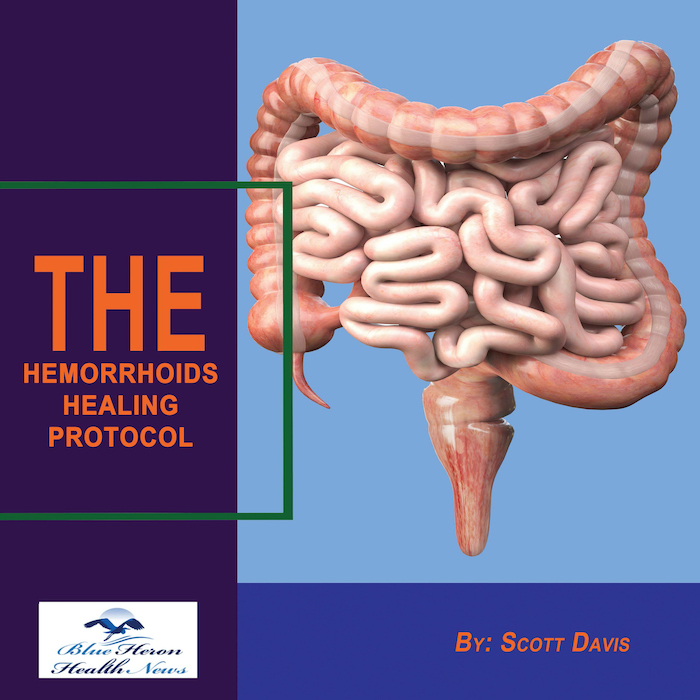
The Hemorrhoids Healing Protocol™ By Scott Davis Hemorrhoid healing protocol is a three-week online program that helps in treating and reducing hemorrhoids. It teaches gentle recipes and movements, natural and effective remedies that help in treating hemorrhoids.This program is not like the usual prescription medicines, it is a hell of a lot more than just those drugs. It focuses more on elevating the two main not so good habits that are connected to the Hemorrhoids. Overall the sole motive of this program is to remove the problem from its root instead of just treating the symptoms.
What are the common risk factors for developing hemorrhoids?
Common Risk Factors for Developing Hemorrhoids
Hemorrhoids are swollen and inflamed veins in the lower rectum and anus that can cause discomfort, pain, itching, and bleeding. Several factors can increase the risk of developing hemorrhoids. Understanding these risk factors can help in preventing and managing the condition effectively. Here is a detailed overview of the common risk factors for developing hemorrhoids:
1. Straining During Bowel Movements
Chronic Constipation:
- Impact:
- Straining to pass hard stools increases pressure on the rectal veins, leading to the development of hemorrhoids.
- Prevention:
- Maintaining regular bowel movements with a high-fiber diet, adequate hydration, and regular exercise can help prevent constipation.
Chronic Diarrhea:
- Impact:
- Frequent bowel movements and straining associated with diarrhea can also irritate and inflame the rectal veins.
- Prevention:
- Managing underlying conditions causing diarrhea and maintaining proper hydration can reduce the risk.
2. Prolonged Sitting or Standing
Sedentary Lifestyle:
- Impact:
- Sitting or standing for long periods can increase pressure on the rectal veins, contributing to hemorrhoid formation.
- Prevention:
- Regular breaks, walking, and stretching can help relieve pressure and improve circulation.
Occupational Factors:
- Impact:
- Jobs that require prolonged sitting (e.g., office work) or standing (e.g., teaching, retail) can increase the risk of hemorrhoids.
- Prevention:
- Using ergonomic seating, standing desks, and taking regular breaks can mitigate the risk.
3. Pregnancy
Increased Pressure:
- Impact:
- The growing uterus during pregnancy exerts pressure on the pelvic veins, leading to hemorrhoid development.
- Hormonal Changes:
- Hormonal changes during pregnancy can also cause the veins to relax and swell more easily.
- Prevention:
- Maintaining a high-fiber diet, staying hydrated, and avoiding prolonged sitting can help prevent hemorrhoids during pregnancy.
4. Obesity
Excess Weight:
- Impact:
- Carrying excess body weight increases pressure on the pelvic veins, contributing to hemorrhoid formation.
- Prevention:
- Maintaining a healthy weight through a balanced diet and regular exercise can reduce the risk.
5. Aging
Weakened Tissues:
- Impact:
- As people age, the tissues supporting the veins in the rectum and anus can weaken, making hemorrhoids more likely.
- Prevention:
- A healthy diet rich in fiber, regular physical activity, and avoiding straining during bowel movements can help prevent hemorrhoids as one ages.
6. Heavy Lifting
Strain:
- Impact:
- Regularly lifting heavy objects can increase abdominal pressure, leading to the development of hemorrhoids.
- Prevention:
- Using proper lifting techniques, avoiding heavy lifting when possible, and strengthening core muscles can help reduce the risk.
7. Diet and Nutrition
Low-Fiber Diet:
- Impact:
- A diet low in fiber can lead to constipation and straining during bowel movements, increasing the risk of hemorrhoids.
- Prevention:
- Incorporating plenty of fruits, vegetables, whole grains, and legumes into the diet can help maintain regular bowel movements and prevent hemorrhoids.
Dehydration:
- Impact:
- Not drinking enough water can lead to hard stools and constipation, increasing the risk of hemorrhoids.
- Prevention:
- Staying adequately hydrated by drinking plenty of water throughout the day can help prevent constipation and hemorrhoids.
8. Genetics
Family History:
- Impact:
- A family history of hemorrhoids can increase the likelihood of developing the condition due to inherited traits that affect vein structure and function.
- Prevention:
- While genetics cannot be changed, adopting healthy lifestyle habits can help mitigate the risk.
9. Medical Conditions
Chronic Coughing:
- Impact:
- Conditions causing chronic coughing (e.g., asthma, chronic bronchitis) can increase pressure in the abdominal area, leading to hemorrhoids.
- Prevention:
- Managing underlying conditions and avoiding activities that exacerbate coughing can help reduce the risk.
Pelvic Floor Dysfunction:
- Impact:
- Dysfunction of the pelvic floor muscles can contribute to the development of hemorrhoids.
- Prevention:
- Pelvic floor exercises and physical therapy can help strengthen the pelvic floor muscles and prevent hemorrhoids.
Summary of Common Risk Factors
| Risk Factor | Description | Prevention Strategies |
|---|---|---|
| Straining During Bowel Movements | Chronic constipation and diarrhea leading to increased rectal vein pressure | High-fiber diet, adequate hydration, regular exercise, managing underlying conditions |
| Prolonged Sitting or Standing | Increased rectal vein pressure from prolonged sedentary positions | Regular breaks, walking, stretching, ergonomic seating, standing desks |
| Pregnancy | Increased pelvic pressure and hormonal changes during pregnancy | High-fiber diet, hydration, avoiding prolonged sitting |
| Obesity | Excess weight increasing pressure on pelvic veins | Healthy diet, regular exercise, maintaining healthy weight |
| Aging | Weakening of tissues supporting rectal and anal veins with age | High-fiber diet, physical activity, avoiding straining during bowel movements |
| Heavy Lifting | Increased abdominal pressure from lifting heavy objects | Proper lifting techniques, avoiding heavy lifting, strengthening core muscles |
| Diet and Nutrition | Low-fiber diet and dehydration leading to constipation and straining | High-fiber diet, hydration, balanced nutrition |
| Genetics | Family history of hemorrhoids influencing vein structure and function | Adopting healthy lifestyle habits |
| Medical Conditions | Chronic coughing and pelvic floor dysfunction increasing abdominal pressure | Managing underlying conditions, pelvic floor exercises, physical therapy |
Conclusion
Hemorrhoids are influenced by a variety of risk factors, including lifestyle habits, dietary choices, genetic predisposition, and medical conditions. Understanding these risk factors can help in adopting preventive measures to reduce the likelihood of developing hemorrhoids. Maintaining a high-fiber diet, staying hydrated, avoiding prolonged sitting or standing, practicing proper lifting techniques, and managing underlying medical conditions are all important strategies to prevent hemorrhoids and maintain overall digestive health. Regular check-ups with healthcare providers can also help monitor risk factors and address any symptoms early on.
The Hemorrhoids Healing Protocol™ By Scott Davis Hemorrhoid healing protocol is a three-week online program that helps in treating and reducing hemorrhoids. It teaches gentle recipes and movements, natural and effective remedies that help in treating hemorrhoids.This program is not like the usual prescription medicines, it is a hell of a lot more than just those drugs. It focuses more on elevating the two main not so good habits that are connected to the Hemorrhoids. Overall the sole motive of this program is to remove the problem from its root instead of just treating the symptoms.
